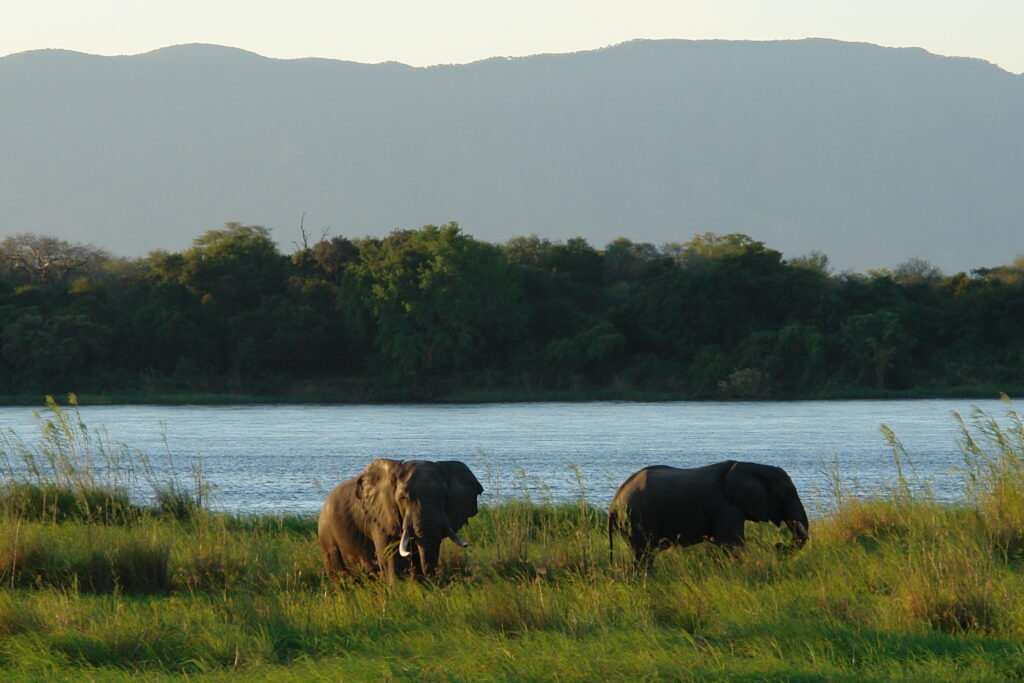Within the next few weeks, my companion Jephita Tumwi and I will embark on a journey that has been a decade-long dream of mine. It is to be a foot journey and will ultimately see us completely circumambulate Zimbabwe, beginning and ending at Victoria Falls and following the borderline the entire distance. When the Borderline concept was first put to me, I was a mere twenty-four years old. I am now thirty-seven and finally ready to put it into practice. At first, it was an interesting idea that was worthy of conversation. Then it became a possibility worth looking into. Now it is a fixation, something that must be done, for so many reasons. Soon it shall be a reality.
Dean McGregor (a.k.a. Mac the Knife) is responsible for planting the seed in my mind, all those years ago. Although the seed was planted in soil none too fertile and neglected much of the time, it somehow sprouted and ultimately sunk its roots deep into the bedrock. At the time, I’m sure Dean never believed his idea would develop into what it has – I certainly didn’t. But times change and ideas become imaginings which grow on us until they demand to be fulfilled.
 It began over a cup of coffee in a dingy coffee shop in downtown Harare, sometime in 1996. Hardly an inspirational setting, but Mr. McGregor is capable of seizing inspiration in even the most mundane of settings. Such is his adventurous spirit and incisive mind. As with most brilliant ideas, it came out of the blue, without preamble.
It began over a cup of coffee in a dingy coffee shop in downtown Harare, sometime in 1996. Hardly an inspirational setting, but Mr. McGregor is capable of seizing inspiration in even the most mundane of settings. Such is his adventurous spirit and incisive mind. As with most brilliant ideas, it came out of the blue, without preamble.
‘Imagine…’ said Dean, sipping his coffee with a faraway look in his eyes. ‘Imagine going on an expedition right around the country.’
I didn’t realize that Deano was in an inspired frame and his opening comment did nothing to enlighten me.
‘We do that all the time,’ I said. ‘The Valley, the Falls, the Lowveld, Eastern Highlands…. We are on a continuous expedition around the country!’
‘No, no,’ said Dean, in that patient tone often used by the inspired when addressing those in the dark. ‘I mean right around the country, following the borderline the entire distance, by means of manpower alone.’
Then he had my attention, and he knew it, giving it time to sink in.
‘You mean walk the borderline of Zim?’ I asked.
‘That’s exactly what I mean – backpack the borderline. Although, I reckon I’d like to canoe the Zambezi stage if I ever got really serious about doing it….’
The topic dominated our conversation for days, but once we went our separate ways – Dean back to his job and me to try and find another job – I pushed the notion forcefully from my mind, or so I thought. It was far too impractical a concept, even for an impractical fellow like me. At that stage, I felt that what was required was a real job, not some hair-brained scheme involving walking around the country. Such is the sad influence that the modern world has on one, and today I am most relieved that that stage of misguided practicality is well behind me.
Much has transpired and much has changed in both my life and Zimbabwe since the borderline concept was first proposed. Although the events in my own life are dwarfed by those of my country, I can say that, at times and for lengthy periods, my personal journey has been remarkably similar to that of my country, leading me down the same self-destructive path. The difference is, of course, that I have always had a choice – Zimbabwe and its people have not. I chose to stumble down that particular path; Zimbabwean society was manacled and force-marched against its will. The good news is that at some point I managed to turn and crawl back up that ruinous path, reaching crossroads and setting out on a different, more enlightened route. As I write this, our country has shattered the manacles that bound it for so long and is also making its way back to those hypothetical crossroads, strengthening as it goes and keeping yesteryear’s flagging captor at arm’s length. It is the hope of millions that this fair land builds up more strength and lengthens its stride accordingly. And that when it does reach the crossroads and is presented with a definite choice of destination, it finds the wings it once had and takes an open highway, never looking back.
Throughout the late nineties and into the new century, I continued the seemingly aimless and never-ending quest that I embarked upon early on in life. A quest it certainly was but in search of what nobody quite knew, least of all me. On the surface, those years may have appeared a futile and unproductive phase of my life, and it certainly felt that way much of the time, but at the end of the day it was educational and there is nothing futile or unproductive about education. That period of erratic and restless wandering taught me about life. It was carried out mainly within the boundaries of Zimbabwe, and I learnt a great deal about myself, my country and its people along the way. I also witnessed the systematic destruction of our once prosperous land. Through it all, ideas, dreams and schemes came and went, either fulfilled or unfulfilled, and if I am honest with myself, few of them meant much. But one dream has always stood head and shoulders above all others, and never dimmed in the slightest. In fact, the rheostat of that dream has been gradually turned up, and at this moment it illuminates even the darkest recesses of my mind.
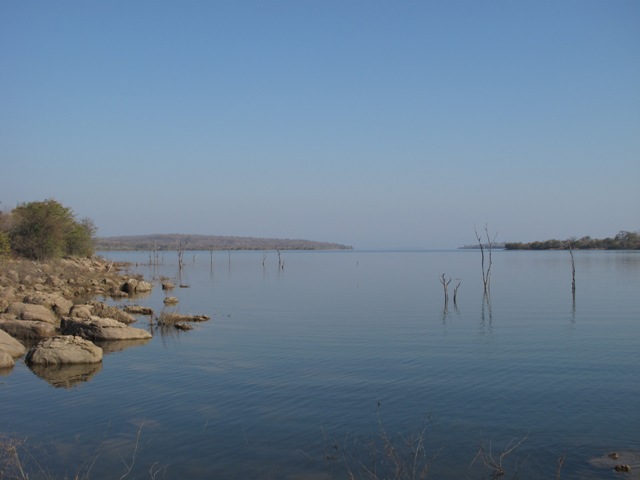
God alone knows why it has taken me so long to commit to the Borderline expedition, but as it turns out the timing is perfect. To be sure, the time has never been right until recently, and that is undoubtedly why commitment was previously lacking. There has never been any question that I would get around to doing the walk, but I guess my attitude before was that there was plenty of time in hand. That outlook changed at some point (about the time I was crawling back to the crossroads!), and through the last half-dozen years the urge to get going has built up increasingly. At present, that urge is all-consuming. No longer do I feel that there is plenty of time, for the time has come.
Naturally, having had such a long time to ponder it all, the original ‘coffee shop’ plan has been amended somewhat, insofar as both the actual walk and its results are concerned. Dean’s original idea was to canoe the Zambezi stretch, but Jephita and I intend walking the entire distance; for years I envisaged journeying clockwise from Kariba, though now we shall leave from Victoria Falls in an anti-clockwise direction; initially, the walk was simply about adventure, today it is more complex and far-reaching than that… The Borderline expedition is no longer the fantasy of youth that it once was – it has been built upon steadily and become a defined strategy with a specific purpose. Although the strategy is somewhat involved, the purpose of the Borderline project is straightforward: we intend to use it as a medium to assist in the reconstruction of our remarkable homeland.
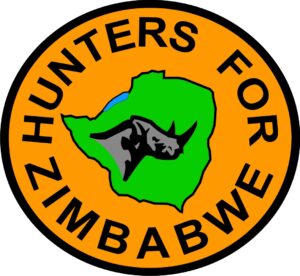 Borderline is a project that falls under the banner of Hunters for Zimbabwe, an organization founded with the intention of alleviating the plight of Zimbabwe’s rural communities and wildlife. The expedition’s primary objective is to raise awareness and support for these worthy causes. Initially, the emphasis will be on rural areas bordering the Save Valley Conservancy, in Zimbabwe’s south-east Lowveld.
Borderline is a project that falls under the banner of Hunters for Zimbabwe, an organization founded with the intention of alleviating the plight of Zimbabwe’s rural communities and wildlife. The expedition’s primary objective is to raise awareness and support for these worthy causes. Initially, the emphasis will be on rural areas bordering the Save Valley Conservancy, in Zimbabwe’s south-east Lowveld.
For many years the Save Conservancy has borne the brunt of poaching activity from neighboring rural areas, with a marked upsurge in recent years. This poaching upsurge can be directly attributed to the decline of Zimbabwe as a whole. HFZ trustees and other progressive people believe that the existing confrontational stalemate requires a proactive ‘hearts and minds’ approach.
It is the opinion of HFZ that the present situation cannot produce a winner, only losers and that if the issue is not positively addressed as a matter of urgency, the area shall continue its one-way journey to absolute self-destruction. So many other areas in Zimbabwe have reached this calamitous end, and HFZ intends doing all it can to avert the same disaster befalling the Save region. It should go without saying that both the communal and wildlife areas depend on each other for survival – as do any adjoining areas throughout the world – and cohesion is actually the only way to bring about positive change and future prosperity. There is no alternative – policy thus far employed has failed dismally and a fresh slant is desperately needed, for the sake of all. Hunters for Zimbabwe intends to bring about this fresh slant, and in the process show Zimbabwe and the world that hunters care – for people, wildlife and the environment in general.
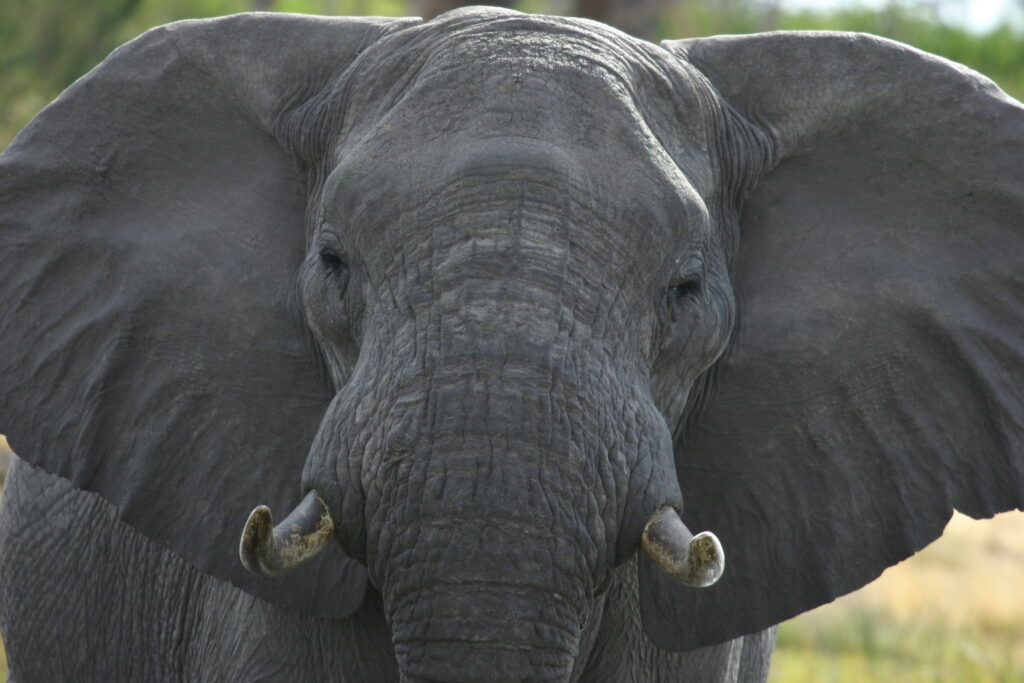 The first step towards bringing about change in the Save region will come in the form of the implementation of community development programs in Chibuwe communal land – a densely populated and impoverished rural area that flanks the Save Conservancy’s eastern front. These community programs will be transparent, well-managed and viable, and will be all about production, education, and restoration: the production of food, by establishing a well-managed irrigation scheme; the education of the populace, insofar as wildlife conservation is concerned; and the restoration of the shell-shocked community vitality, with the emphasis on creating employment, child welfare, health services, and infrastructure.
The first step towards bringing about change in the Save region will come in the form of the implementation of community development programs in Chibuwe communal land – a densely populated and impoverished rural area that flanks the Save Conservancy’s eastern front. These community programs will be transparent, well-managed and viable, and will be all about production, education, and restoration: the production of food, by establishing a well-managed irrigation scheme; the education of the populace, insofar as wildlife conservation is concerned; and the restoration of the shell-shocked community vitality, with the emphasis on creating employment, child welfare, health services, and infrastructure.

As stated, the Borderline project shall be used to publicize and raise support for the cause(s) championed by Hunters for Zimbabwe. This shall be done in a variety of ways, beginning with the publishing of regular Borderline enroute articles, written by me and run by the African Expedition Magazine – the primary sponsor of the expedition. Funding for the expedition and the initiation of the HFZ community development programs shall be realized through the sale of my book about the Zimbabwean Lowveld, The Shangaan Song, and through the sale of Borderline T-shirts and memorabilia, all of which shall be available online, on the African Expedition and Borderline websites.
This is what the Borderline expedition is all about. Of course, it is much more involved than what is or can be written here, and this article is meant only to serve as an introduction to the venture – an outline of the game-plan and goals. The issue of greatest importance at this time is to get walking, and that is what currently dominates my thoughts.
We intend to leave by June 1, 2009. We shall leave from Victoria Falls and travel west, to Kazangula, and then south, down the length of Zimbabwe’s western border with Botswana, to Plumtree and the Limpopo Valley beyond. That is the first stage of four distinct stages, the other three being the Limpopo Valley/Lowveld, the eastern highlands/highveld and the Zambezi Valley. We will walk through semi-desert, mighty river valleys and mountain ranges, big game country and communal lands, cities and rural villages. Our intention is to adhere to the borderline as much as possible, but we will be forced to move inland at times, to avoid swamps, landmine fields, and army no-go areas, and to ford a few major rivers. Our route will be tracked on Google Earth for all to follow, and regular updates in the African Expedition Magazine will keep the public informed of progress, or the lack of it!
We shall ultimately cover 3000 kilometers or so and envisage taking up to a year to complete the journey, bearing in mind that we shall have minimal back-up and carry all that is needed, which shall equate to between 20 and 25 kilograms per man. In any case, there is no time frame, or any other control measure attached to this walk – it may take more than a year, or only eight months, who knows. The only defined rules are that we cover the distance by way of foot alone and that we thoroughly enjoy what will be the adventure of a lifetime.
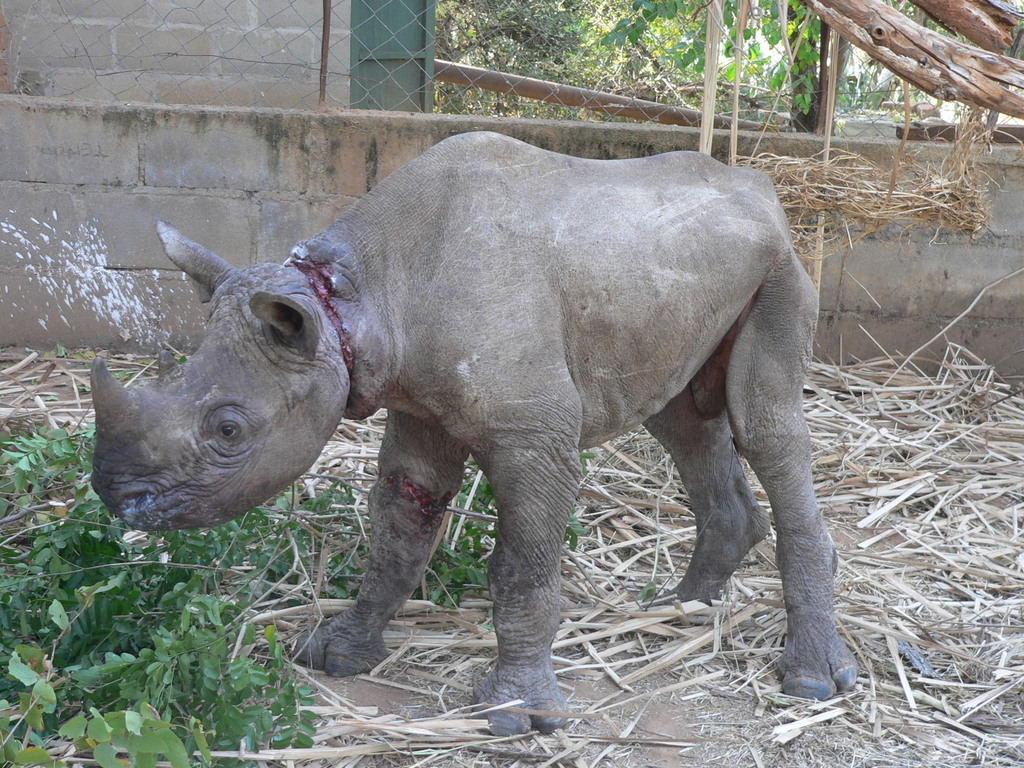
It is our hope that many other people will enjoy the adventure with us, if not in body then in spirit, by following our progress and supporting our mission. Upon the walk’s conclusion, an account of our travels through this wondrous land will be published. As with The Shangaan Song, certain proceeds from the Borderline book will be donated to Hunters for Zimbabwe, to further finance that organization’s endeavors. I wonder when and where I will once again cross paths with Dean McGregor. One place I’m certain that meeting won’t take place is in a dingy coffee shop in downtown Harare. I have recently heard, on the adventurer’s grapevine, that Deano is now guiding somewhere in the Kariba area. If this is indeed the case, we will undoubtedly meet up with him there, as we enter the final stretch. I actually believe there is a strong possibility of teaming up with him before then – there are three and three-quarter lengthy stages and many months between the starting post and Kariba, and I know that once he reads this article, ‘Mac the Knife’ will be champing at the bit.
Footnote: I would like to take this opportunity to extend my gratitude to those who are making this expedition possible: The staff of the African Expedition Magazine, particularly the editors, Mitch Mitchell and Alan Bunn; the director-general of the Zimbabwe National Parks Authority, Dr. Morris Mtsambiwa; Dean McGregor, Jephita Tumwi and my long-suffering family. Last but by no means least, special thanks to my best friend – you know who you are and why I thank you.

